Up Front
Letter from the Editor: A New Chapter for the Observer
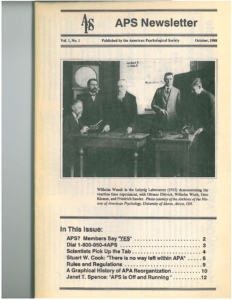
The first issue of the APS Observer was published in October 1988. It was 12 pages long, black ink on newsprint, and bursting with the righteous pride of the 400 visionary professionals who just months before had voted to break off from the American Psychological Association as an independent organization supporting “scientifically-oriented psychology.”
“The fledgling American Psychological Society—not a quite month old as this is being written—is off to an auspicious start,” wrote Janet T. Spence in her inaugural Presidential Column. Plans were being laid to produce the society’s first journal, Psychological Science; to convene the first APS convention the following June; and to recruit like-minded academic and research psychologists who wished to preserve “the unity of psychology as a research-oriented discipline,” Spence wrote.
Over the years, the Observer grew and evolved with APS more broadly, which rebranded as the international-facing Association for Psychological Science in 2006. Psychological Science launched in 1990 and quickly became established as the best-in-class journal it remains today. APS’s five other journals followed, from Current Directions in Psychological Science in 1992 to, most recently, Advances in Methods and Practices in Psychological Science in 2018. Our convention became a can’t-miss annual event that attracts thousands of psychological scientists from all subfields and corners of the world. Our membership eventually exceeded 30,000—just as the founders had projected back in that very first issue of the Observer.
As for the Observer, the black-and-white member newsletter added a second color and, step by incremental step, upped its frequency, coverage, heft, and sophistication with the debut of a four-color magazine in the early 2000s. By then, APS’s science was informing audiences well beyond the membership, thanks to the website that went live in the late 1990s. Among other achievements, articles covering topics from happiness and smiling to procrastination and burnout went on to attract millions of readers online. Today, many years’ worth of the collected Observers are on view along the hallways of the APS office in Washington, DC.
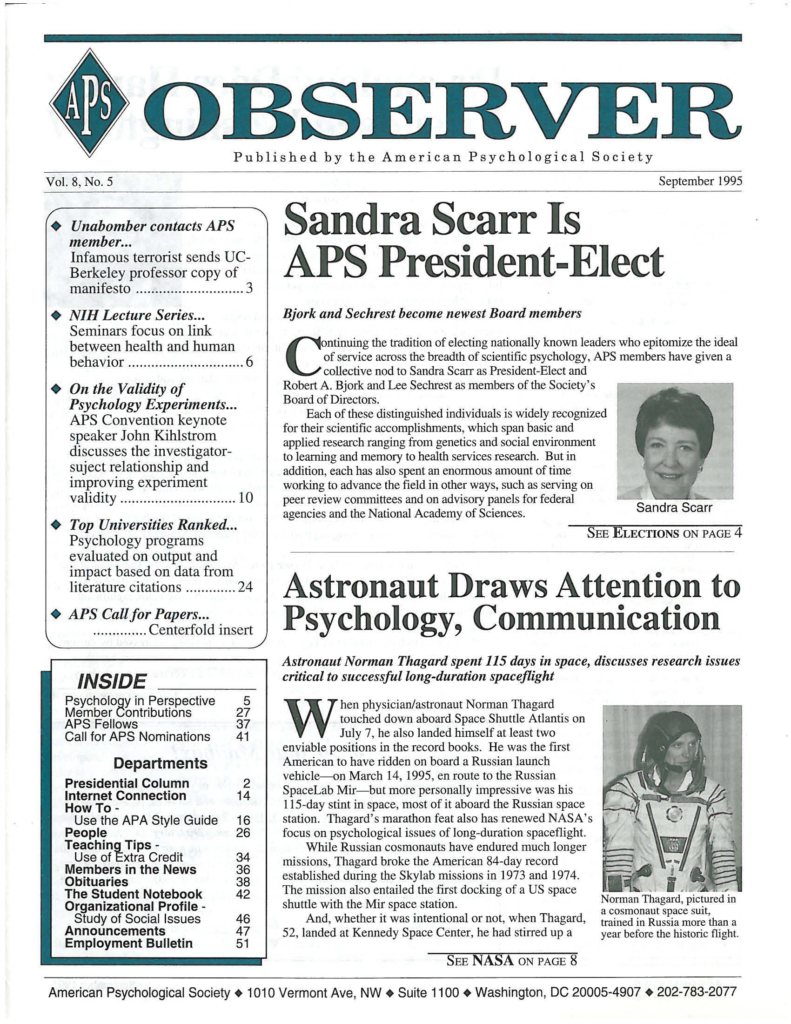
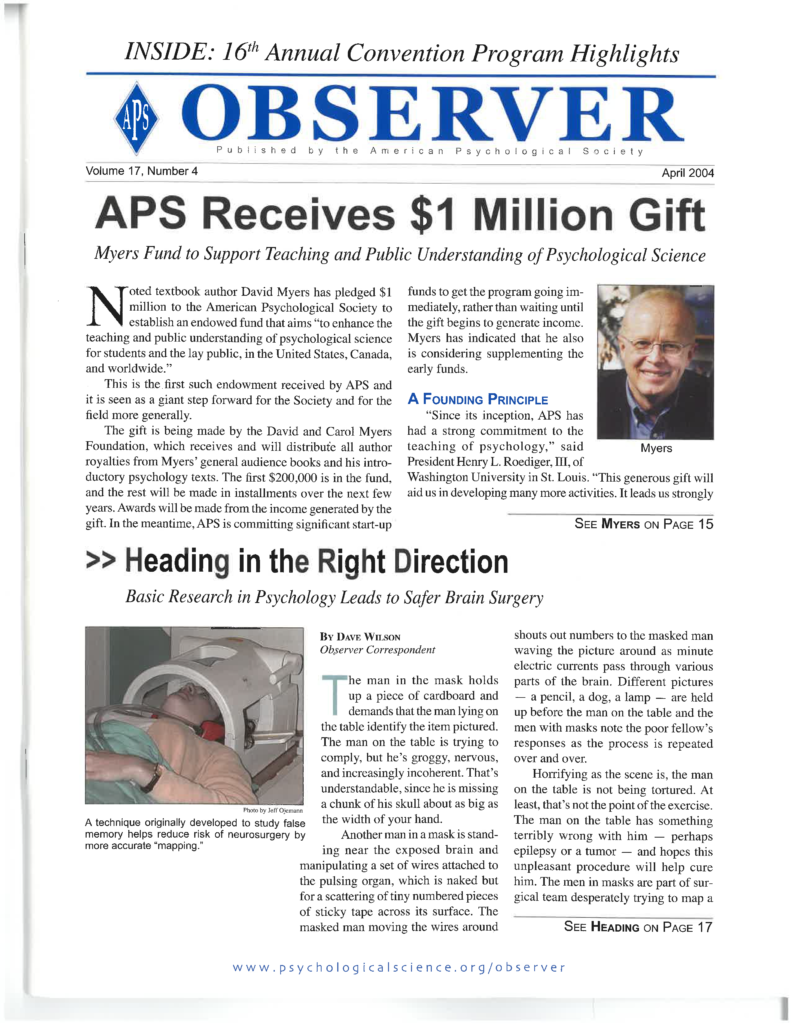
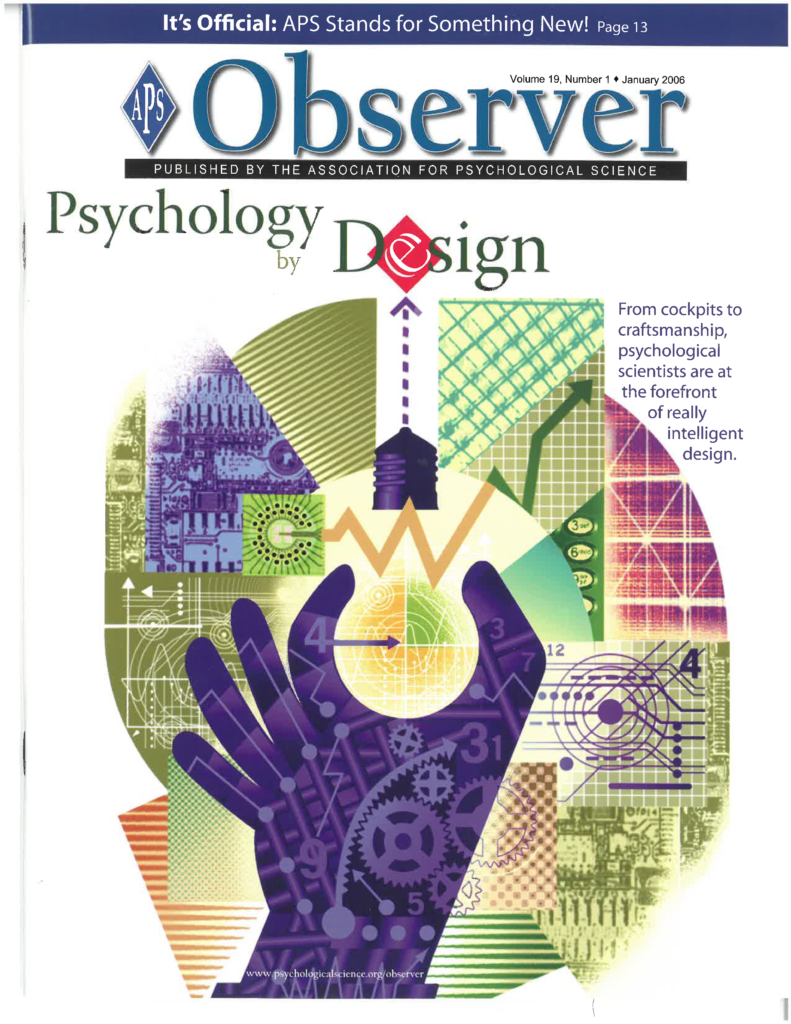
K. Lee Herring, APS’s first director of communications, recalls deciding as Observer editor “to align the publication’s physical appearance with the youthful energy of the then-new APS.” He favored bold new images depicting contemporary news, a stark contrast to the covers that “typically featured ‘dusty-looking’ archival photos of only early 20th-century male psychologists,” he said. Wishing to appeal to APS’s growing non-psychologist policymaker and public audiences, Herring believed “acknowledgement of psychology’s ‘shoulders of giants,’ could be achieved without the covers’ exclusive focus on ‘dead scientists.’”
That forward-looking perspective continues to guide APS and the Observer today. In fact, this issue of the Observer represents another significant leap ahead: It’s our final print issue as we transition to an all-digital format that will serve you more effectively.
We are thrilled with this development. Transitioning away from print, with its long lead times and expensive printing and mailing costs, enables us to give APS members more for your membership dollars. You will benefit from more timely and responsive reporting on the issues that affect your work, and a more robust web presence, including new digital products like the podcasts we started in 2020, that help you readily find and engage with the content you need, when you need it.
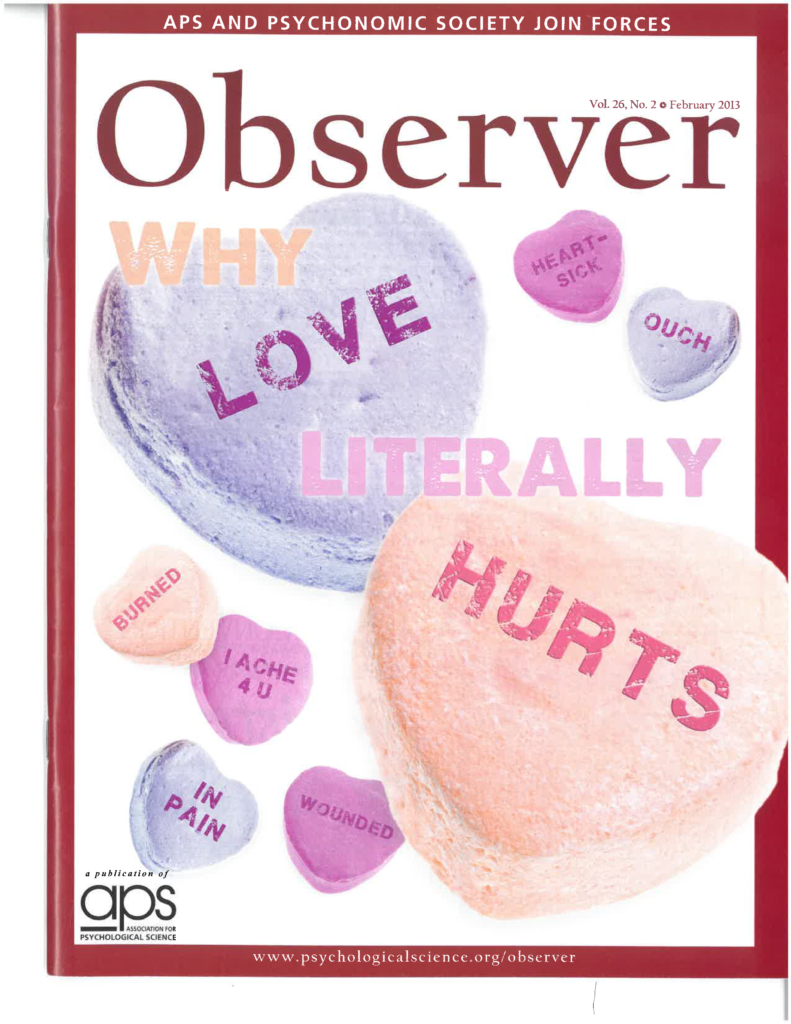
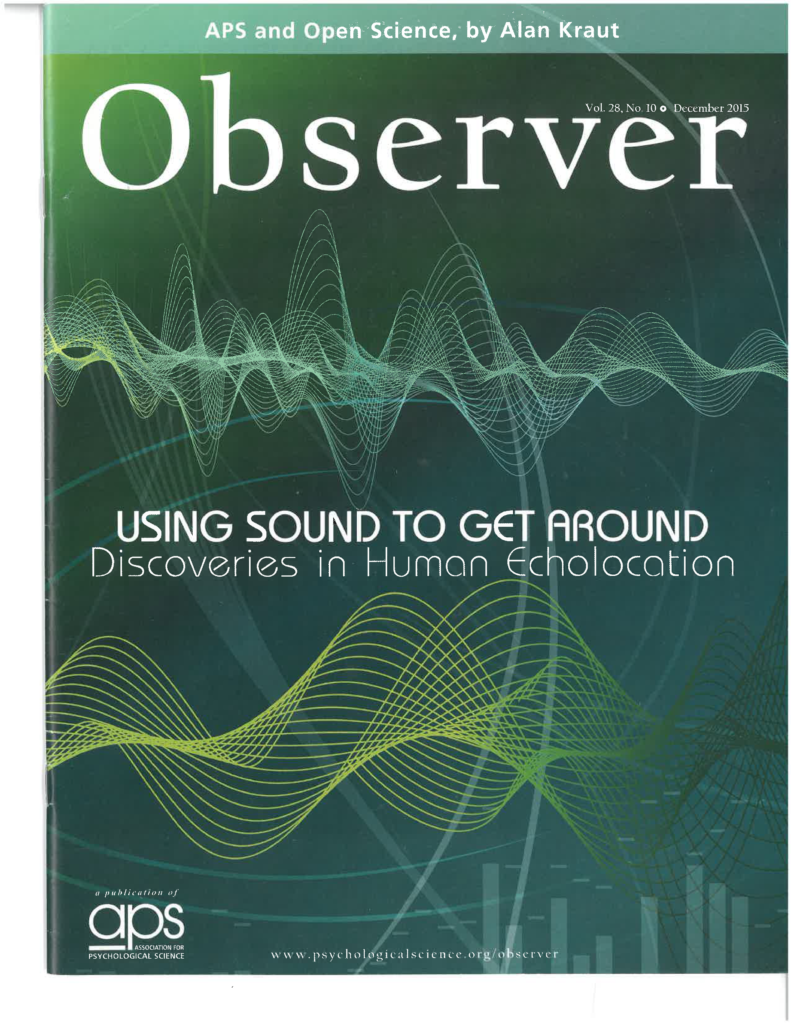
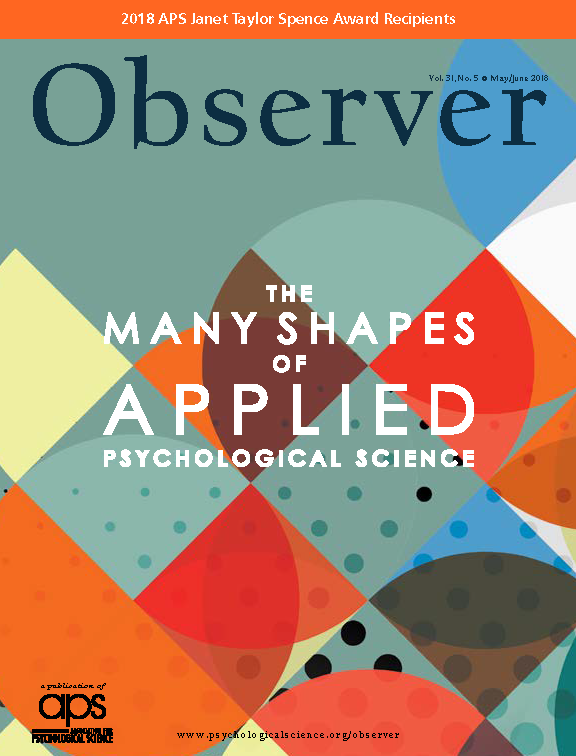
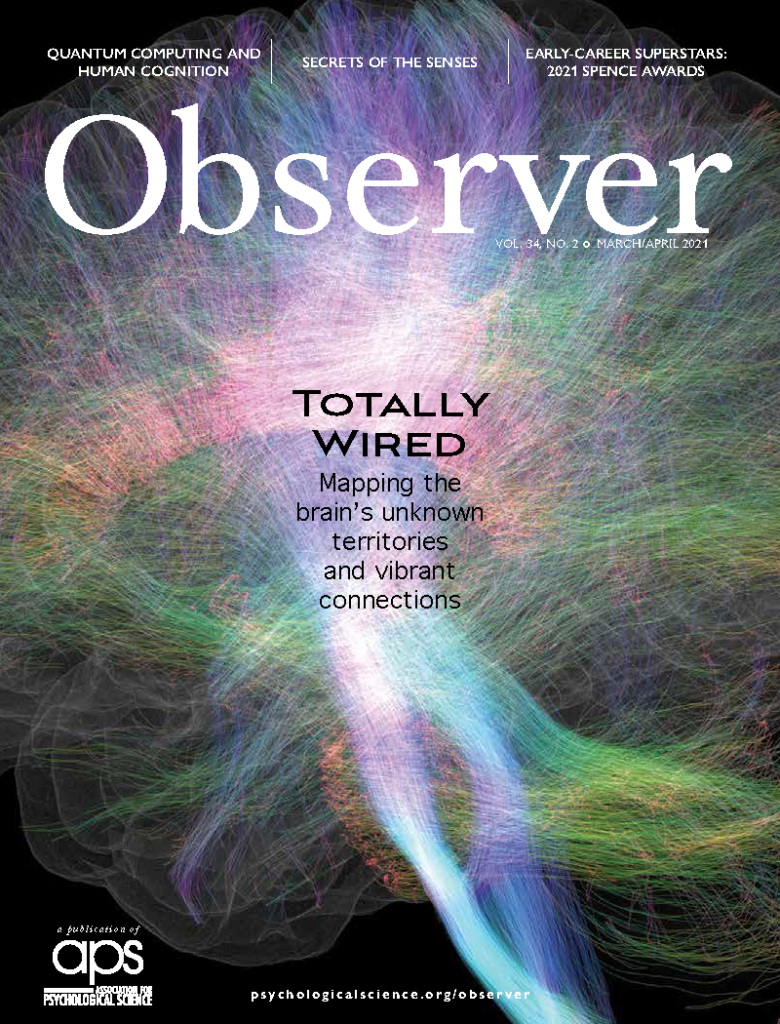
The environmental impact of print isn’t lost on us either, and no longer printing and mailing the millions of pages that constitute each year’s volume will help us do our part to reduce the impact of deforestation, pollution from paper mills, and harmful chemicals used in printer inks. Environmental stewardship is important to APS, as is ensuring our long-term ability to serve future generations of psychological scientists around the globe.
In short, the new, all-digital Observer will deliver even more of the content APS members need to advance science, improve human welfare, and prepare for a rapidly changing future. Plus, if you like the existing bimonthly format, you’ll still be able to access the magazine as a collective whole online—with all of its feature and department articles intact—starting with the July/August issue.
We welcome your feedback on this development—and your ideas for making it even more successful—and would love to hear from you: apsobserver@psychologicalscience.org. In the meantime, feel free to browse the entire Observer archive (35 volumes and counting) at psychologicalscience.org/observer.
— Leah Thayer
Editor, the Observer
APS Senior Director of Communications
Feedback on this article? Email apsobserver@psychologicalscience.org or scroll down to comment.





Comments
Fordham University, Lincoln Center Campus
Member
Member Since 11/30/2010
Editor Leah Thaler, great luck going digital. You offer many compelling reasons for the APS Observer to go digital. I can add one more. When retirees try to give away complete sets of their precious journals, they are typically surprised that libraries and colleagues do not want these, which then find their painful way into the trash. Can the Observer make its articles available as PDFs, so they can be easily printed and shared by authors and readers? Great luck with your transition Leah, Harold
That’s a great idea, Harold. We are looking into PDF functionality now. Thanks for your note. — Leah
Harold – Logged-in APS members can now download articles as PDFs! Thanks again for the suggestion.
APS regularly opens certain online articles for discussion on our website. Effective February 2021, you must be a logged-in APS member to post comments. By posting a comment, you agree to our Community Guidelines and the display of your profile information, including your name and affiliation. Any opinions, findings, conclusions, or recommendations present in article comments are those of the writers and do not necessarily reflect the views of APS or the article’s author. For more information, please see our Community Guidelines.
Please login with your APS account to comment.